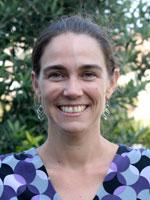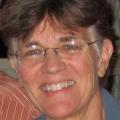Co-authors:
Resource Library
Released in April 2014, the 2014 United States Report Card on Physical Activity for Children and Youth assesses the levels of physical activity and sedentary behaviors in American children and youth, facilitators and barriers for physical activity, and related health outcomes.
The purpose of these guidelines is to summarize the most successful ways of implementing ARS 28- 797 in order to effectively achieve school safety throughout Arizona.
 Hello Safe Routes to School friends and advocates far and wide,
Hello Safe Routes to School friends and advocates far and wide,
Steps to a Walkable Community compilesmultidisciplinary tactics that readers can assemble into customstrategies designed for their community’s circumstances. The guidecontains tactics for building or rebuilding cities and suburbs in ways thatencourage walking.
 In an April 2013 interview, then-US Surgeon General Regina Benjamin talked about the importance of enjoying exercise: “It's all about having healthy fun. We need to find things to make it fun, like walking.
In an April 2013 interview, then-US Surgeon General Regina Benjamin talked about the importance of enjoying exercise: “It's all about having healthy fun. We need to find things to make it fun, like walking.
Schools can provide outstanding learning environments while improving children’s health through physical education.
 One of the biggest challenges to making communities more walkable and bikeable is that there’s often only enough funding to build one stretch of pathways or sidewalks at a time—meaning that there aren’t complete networks from homes to schools, workplaces or other destinations.
One of the biggest challenges to making communities more walkable and bikeable is that there’s often only enough funding to build one stretch of pathways or sidewalks at a time—meaning that there aren’t complete networks from homes to schools, workplaces or other destinations.
These briefings sheets were developed with funding support from the National Center for Safe Routes to School. The briefing sheets are intended for use by transportation engineers and planners to support their active participation in the development and implementation of Safe Routes to School programs and activities.
The Livability in Transportation Guidebook’s primary purpose is to illustrate how livability principles have been successfully incorporated into transportation planning, programming, and project design, using examples from State, regional, and local sponsors, applicable in urban, suburban, and rural areas.
 Kids need 60 minutes of physical activity a day to keep their heart and lungs healthy and maintain a healthy weight. Schools play a big role in encouraging active lifestyles for students of all ages, whether it’s walking and bicycling to school or being active at school and in the classroom.
Kids need 60 minutes of physical activity a day to keep their heart and lungs healthy and maintain a healthy weight. Schools play a big role in encouraging active lifestyles for students of all ages, whether it’s walking and bicycling to school or being active at school and in the classroom.
In this report CDC analyzed data from the National Vital Statistics System multiple cause of death files for the period 2000–2009 (3), the most recent data available.
May is the last month of the school year for many Southern states, and one where we see great numbers of children actively commuting to and from school. Maybe there are so many people walking and bicycling because the weather is so nice, or maybe because teachers and parents want an outlet to that pre-summer energy the kids seem to have bundled inside them! Regardless, walking and bicycling to school are great ways to enjoy the outdoors in our Southern state as well as get some much needed physical activity.
In October 2011, Active Living Research published a research synthesis, School Policies on Physical Education and Physical Activity, that summarizes the peer-reviewed literature on school physical education and physical activity policies, and offers policy implications and areas where additional research is needed.
 The July 4th weekend brought all of the flare and celebration that we expect every year; celebrations of freedom and opportunity that ideally we all should have and enjoy. Unfortunately, while many Americans around the country gathered to eat barbeque and watch the fireworks, families and friends in Chicago ran and cried as pops and flashes riddled the city.
The July 4th weekend brought all of the flare and celebration that we expect every year; celebrations of freedom and opportunity that ideally we all should have and enjoy. Unfortunately, while many Americans around the country gathered to eat barbeque and watch the fireworks, families and friends in Chicago ran and cried as pops and flashes riddled the city.
This report describes the expert panel process that was used to identify 24 recommended strategies for obesity prevention and a suggested measurement for each strategy that communities can use to assess performance and track progress over time.
 August may be slow here in Washington D.C., but the coming several months are a great time for you at home to highlight the changes Safe Routes to School are making in your community.
August may be slow here in Washington D.C., but the coming several months are a great time for you at home to highlight the changes Safe Routes to School are making in your community.
NPLAN has surveyed existing law, conducted extensive legal research, and consulted with legal and policy experts to create these model laws (local ordinances and state statutes) and local and state/regional resolutions (which may be easier to pass, but are not binding) for Complete Streets.


